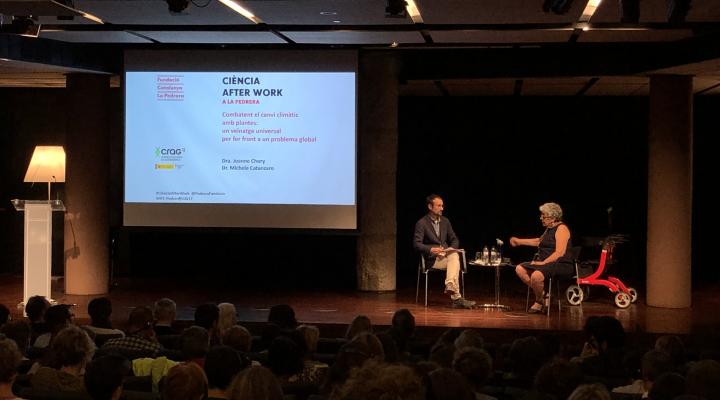
Joanne Chory - Combating climate change with plants: A universal neighbourhood to address a global problem
Conference by Joanne Chory, 21 October 2019
Conference by Joanne Chory, a researcher at the Salk Institute (USA) awarded with the 'Princess of Asturias Award for Scientific and Technical Research 2019', and Michele Catanzaro, a scientific disseminator.
The world is facing a global sustainability crisis. The world's population is currently more than 7.5 billion, and is expected to increase to 11 billion by 2100. Growing demand for food, fuel, land and other natural resources has consequences, such as rising temperatures, extreme weather events, ecosystem collapse, and acidification of the oceans. Our planet does not have enough capacity to absorb these changes and maintain stability.
At the current rate of change, human life as we know it may not be sustainable on Earth in just over 100 years. Feeling the urgent need to be part of the solution, Salk Institute scientists have developed a plan to reverse this upward trend to a system-supported range which keep the planet’s natural balance. The idea is to improve plants' natural ability to capture and store carbon in the soil.
Dr. Joanne Chory talks about altering 3 traits in plant roots (increasing root depth, increasing biomass, and increasing suberin content), which we hope will help reduce CO2 globally in about ten years’ time. Recent advances in plant biology suggest that this goal is within reach. By improving plants' natural ability to deposit carbon in the soil so that it does not decompose easily, enough CO2 can be seized to make a significant contribution to the global effort on many fronts to become carbon neutral.